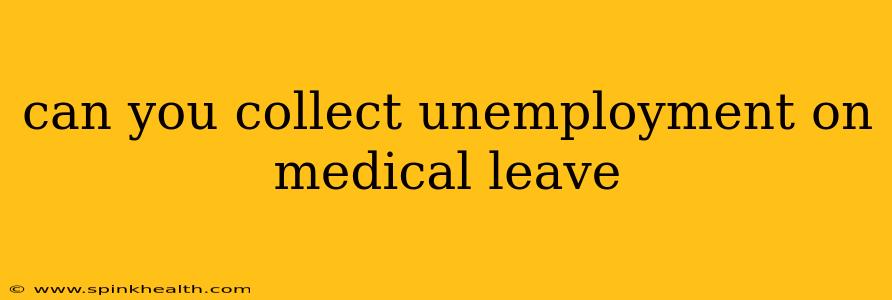Can You Collect Unemployment on Medical Leave? Navigating the Complexities of Illness and Income
The question of whether you can collect unemployment while on medical leave is a common one, fraught with complexities that depend heavily on individual circumstances and the specific laws of your state or country. It's not a simple yes or no answer. Imagine this scenario: Sarah, a dedicated graphic designer, suddenly finds herself facing a debilitating illness requiring extended medical leave. Her income halts, and the worry of mounting bills weighs heavily. Can she claim unemployment benefits? Let's unravel the intricacies.
What are the general rules regarding unemployment and medical leave?
Generally, to receive unemployment benefits, you must be unemployed through no fault of your own. This is the crucial point. If your medical leave is covered by your employer's short-term disability insurance (STD) or a similar program, you are usually not eligible for unemployment benefits. This is because the disability benefits are considered a form of income replacement.
Think of it like this: unemployment benefits are designed to help people who are involuntarily out of work. If you are on medical leave, and receiving paid leave through your employer's plan, it implies you still have a job, even if you're not actively working.
However, if your employer doesn't offer paid medical leave or if your leave exceeds the coverage provided by STD, the situation becomes more nuanced. In such cases, you might be eligible for unemployment benefits, but it's not guaranteed.
What if my employer terminated my employment during my medical leave?
This changes things significantly. If your employer terminated your employment while you were on medical leave, and this termination is deemed unlawful (for example, due to discrimination related to your illness), you are likely eligible for unemployment benefits. Your eligibility will depend on the specifics of the termination and the laws in your state. You'll likely need to provide documentation proving your employer's actions were unjust.
This scenario reflects a different situation entirely— involuntary unemployment resulting from an unfair dismissal, rather than a temporary medical leave.
Does my type of medical leave matter?
The type of medical leave might influence your eligibility. For instance, Family and Medical Leave Act (FMLA) leave in the United States is unpaid, but it protects your job. You may be eligible for unemployment benefits after your FMLA leave ends, provided you meet all other eligibility requirements and are indeed unemployed.
What documentation do I need to provide?
The required documentation will vary by state/country. But generally, you will need to provide proof of your medical condition, documentation from your employer regarding your leave, and any evidence of your employment history. Be prepared to provide comprehensive documentation to support your claim. Thoroughly check the requirements of your state’s unemployment agency.
How do I apply for unemployment while on medical leave?
The application process differs by location. You'll typically need to apply through your state or country's unemployment insurance agency. Their website will have detailed instructions and forms. The process often involves providing documentation of your employment history, your medical leave, and your reasons for needing unemployment benefits.
Disclaimer: This information is for general guidance only. The eligibility criteria for unemployment benefits vary widely depending on your location and individual circumstances. It's crucial to consult directly with your state or country's unemployment agency for accurate and up-to-date information related to your specific case. They can provide the most accurate and legally sound advice. Seeking advice from an employment lawyer may also be helpful in navigating complex situations.

